Friend #51 & 52 - Felix and Jana
My parents + key learnings
To my friends, you are the loves that have made all love possible.
Read time: 15 minutes
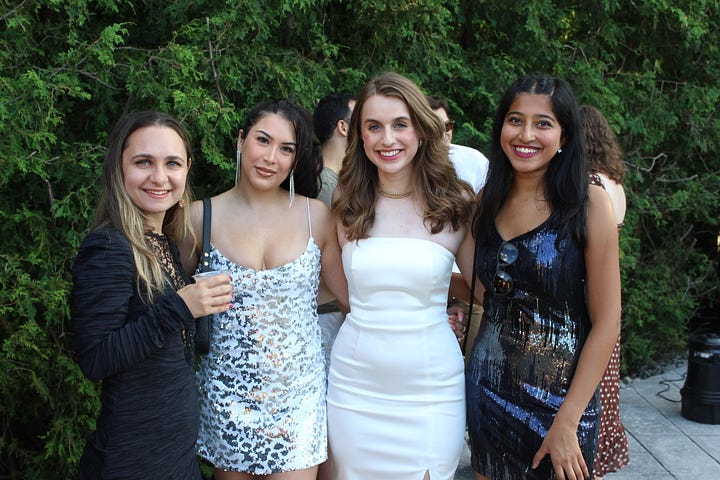
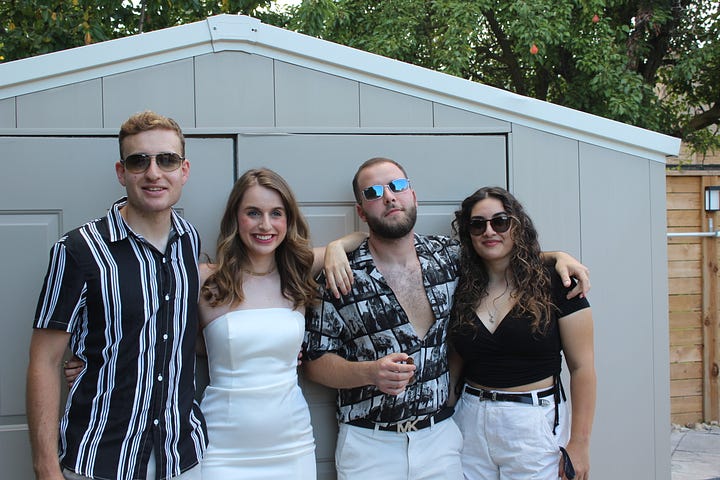
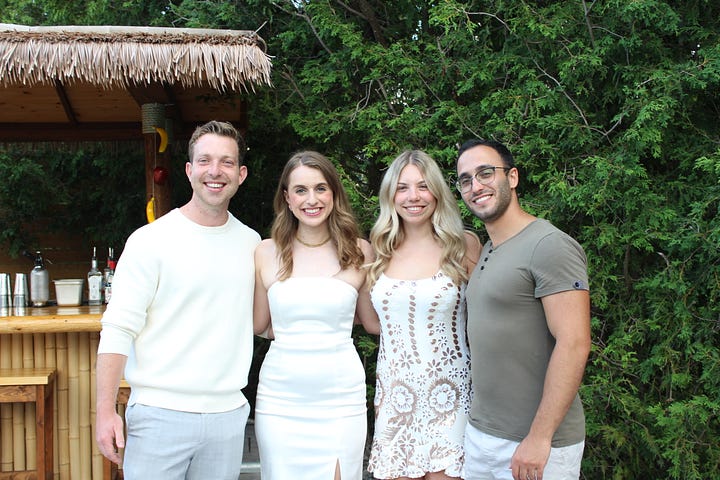
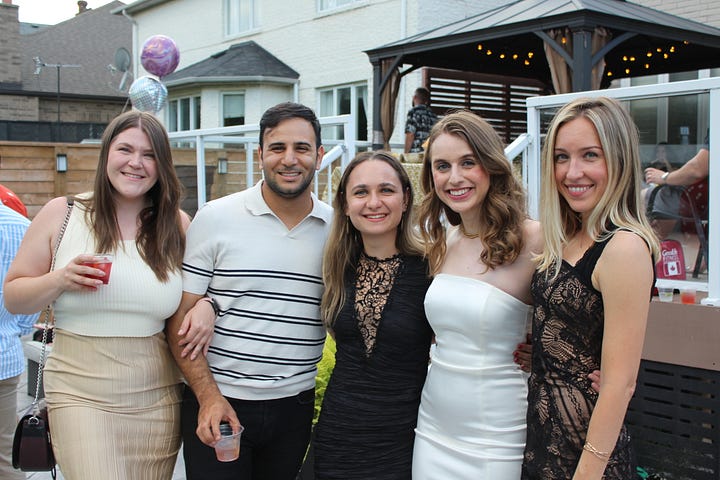
Dear friend,
There are few people who know me well. Those who do know that there is no concept I am fascinated by more than love. In Paris, last summer, my childhood best friend and I walked in circles around Père Lachaise cemetery looking for a grave with the name Gassion—Édith Piaf. She who sang of la vie en rose.
It is therefore no surprise that I dedicated an entire year to researching and documenting stories on what Aristotle called the supreme form of love. A transactionless love—friendship.
In October 2022, I made it my goal to connect or reconnect with 52 friends over the course of a year and document it. I saw it as a way of helping myself out of a long period of loneliness.
As you may imagine, this has been a massive undertaking. But to say that I haven’t always been an observer of the human condition would be a lie. As a high school student, I walked home from school and imagined a book whose chapters were divided by friend names. Each friend represented a chapter in my life, an adventure, a world unknown that I had explored and then put to paper.
I’ll continue by stating the obvious. I’m not a psychologist or a doctor or a professor. I’m a storyteller.
By sharing my experience meeting 52 friends, I feared it could be interpreted as an oversimplification. The state of loneliness is inevitably complex—something researchers spend an entire lifetime investigating. But to understand friendship, it’s essential to understand this feeling—loneliness.
The person who I credit with educating me is clinical psychologist and eventually friend, Ami Rokach who has been researching and teaching loneliness for the past 40 years. He first pointed out that the loneliness experience is a subjective one but research shows that we only really need three to five close friends and one to two very close friends.
I was most disheartened to learn that there is a stigma surrounding loneliness and that is one of being unlikable or lacking the ability to make or maintain relationships. A weakness that could possibly be contagious. This couldn’t be further from the truth.
There are countless social, emotional, and existential reasons why we may experience loneliness. Maybe you feel you need more close friends. Maybe you’ve immigrated to a new land. Maybe you’ve just been diagnosed with cancer. Maybe you make love to someone who doesn’t understand you.
“Loneliness is just like hunger and fear and joy and sadness. It’s part of being human. It’s an alarm system that says, ‘Something is missing, pay attention to it,”’ says Ami Rokach.
The word loneliness rarely appears in the English language before 1800 but as people, we’ve needed one another since the beginning of time. John Cacioppo who founded the Center for Cognitive and Social Neuroscience at the University of Chicago developed the evolutionary theory of loneliness. The idea is that as primates we needed to belong to a group to survive. Separation could mean serious danger—possibly death.
Loneliness triggers a fight-or-flight response within us and that is why we associate it with stress and anxiety. We become scared, apprehensive, sleepless and our hearts race, only intensifying our fear of connecting and reaching out to people—damaging our internal mirrors.
In 2017, before the pandemic, the U.S. Surgeon General, Vivek Murthy called loneliness a public health epidemic. In his book Together: The Healing Power of Human Connection in a Sometimes Lonely World, Murthy argues that problems like anxiety, violence, trauma, crime, suicide, and addiction have loneliness at the root.
In Toronto, where I live, we’ve seen an unfortunate uptick in street violence which is likely a side effect of the stress of the last few years. But, in my opinion, the pandemic may have amplified loneliness but it did not cause it. To our benefit, it brought loneliness out of the closet to a point where we are more comfortable talking about it.
There is a pre-Islamic concept called asabiyyah. It essentially means social solidarity with an emphasis on consciousness and unity. 14th-century Islamic philosopher Ibn Khaldun popularized the term in one of his books and argued that asabiyyah is the fundamental bond of our societies and that it is directly related to the rise and fall of civilizations. Emerging civilizations had the strongest social solidarity while it declined as the civilization advanced and then eventually another asabiyyah took over.
“Rome, Jerusalem, Paris, Medina. These cities were built by people working together,” my dad told me over breakfast one day.
And he’s right. We need one another. The pandemic may have changed the way we live but it solidified that we need human connection.
Generally speaking, it can be difficult to make friends as an adult. We have less time. Less shared experiences. We’re less vulnerable. You’ll see, friend, it’s important to prioritize friendship.
Juliane Holt-Lunstad, a professor of psychology and neuroscience at Brigham Young University, and her colleagues found that a lack of social connection can be more harmful to our health than obesity, smoking, and high blood pressure while strong social connectivity leads to a 50 percent increased chance of longevity as it strengthens our immune system.
Ami Rokach made it clear to me that there are no hard and fast solutions to loneliness. “The main thing you need to do is be aware and admit to yourself that you are lonely and experience it before you attempt to deal with it,” he says.
This project, you’ll quickly understand, was never about amassing friends. I reached out to people to talk about friendship and I am closer with some friends than others. It became a deep dive into identity, vulnerability, empathy, acceptance, generosity, and collectivism.
The greatest gift of friendship that I have been given as a human is my parents. They are my 51st and 52nd friends. Today is their 27th wedding anniversary.
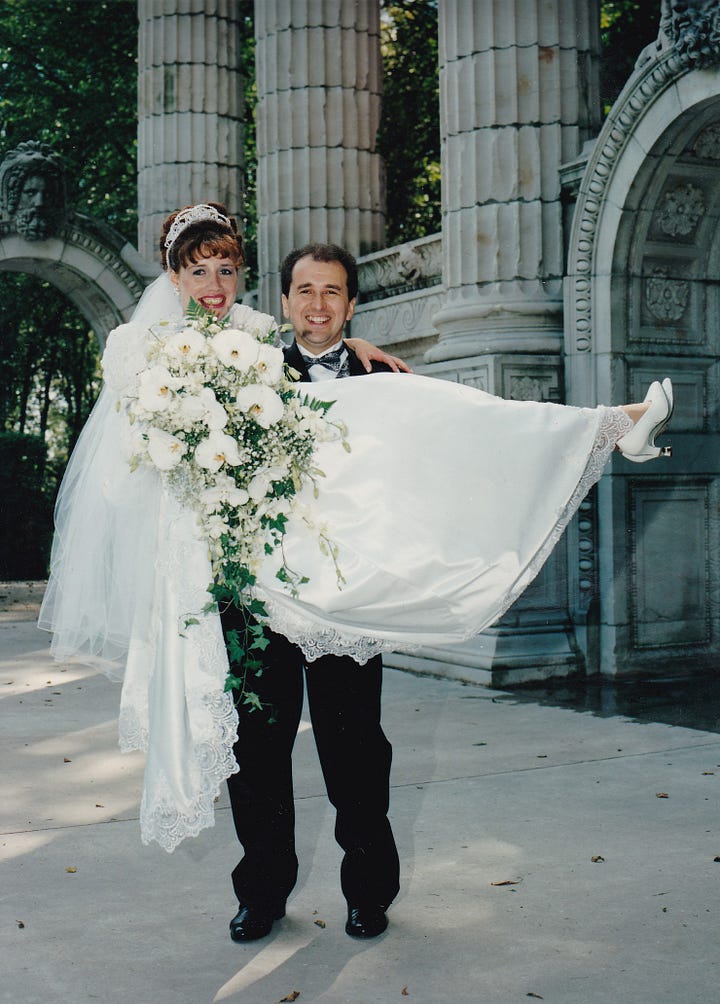
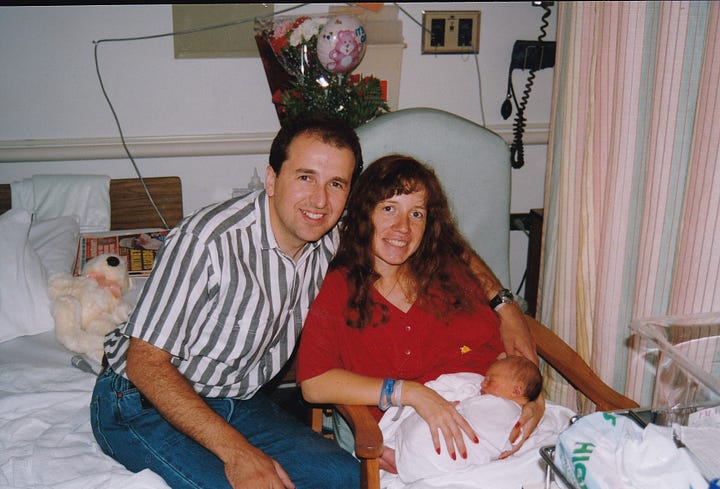
“Je vous souhaite d’être follement aimée.”
—André Breton
I knew that if I were to write in the tongues of men or of angels but did not have love, I would simply be a clanging cymbal. Maybe it was when the couple walked into “I Love You Baby” or when the man beside me proclaimed in a Persian accent, “The best thing I ever did was meet my girlfriend, Aleeshia,” that I decided I was so happy. It’s July 29, 2023, and my childhood friend Cynthia has just wed her beloved Christopher.
The following week my father acts as a witness as our family friends Maya and Oren celebrate their love. He signs the Jewish marriage contract in Hebrew, “Felix the son of Mordecai.”
I hold onto my name, Miriam. The daughter of Felix and Jana—a distinction.
My parents met through a Jewish matchmaker—it was 1995. My dad was 31 and earnestly looking for love. His best friends were all married or in serious relationships and he genuinely thought that he had missed the boat.
After attending a brit milah following the birth of his friend's son, my immigrant father who expected to be married by the age of 26 sat in his car and cried.
In an effort to help, my dad’s best friend Joel signed him up for a Jewish matchmaker. A friend of theirs who was in his 40s at the time was seeing a new woman he’d met through this matchmaker and he, like the Sephardic version of the fairy Godmother, said, “No one should be alone, there is a match for everyone,” and he was right.
When my dad met my mom—a woman ten years his junior, he pursued her so attentively that my mother once pretended not to be home when my father rang the doorbell. Finally opening to my worried father. “I was tired of seeing him every day,” she now jokes.
Later, in my mom’s best effort to impress her new lover, she did what any 22-year-old woman does—cook rabbit stew.
My mom’s mom, Mara, was dying when my parents began dating but when Mara saw my father for the first time, she instinctively told my mom that she’d marry him. Two months after meeting, my parents were engaged and on September 15, 1996, they wed in a big fat Jewish wedding that people spoke of for years to come as “The wedding”—even the Italians.
In June, I sit in the family room and watch my father flip through vacation pictures on his phone. “So pretty,” he says under his breath as he looks at a photo of my mother. His Principessa—constantly assuring my mother that she is beautiful in these years that follow a successful battle with breast cancer.
“I love how your parents are having so much fun,” my friend Shubham tells me on my 26th birthday in August. My dad stands barefoot on our street licking an ice cream cone while my mom dances with tens of my friends gathered in the backyard.
My parents have always embodied what it means to be honourable. Never the most popular or the most decorated, not even the most successful. But the most honourable. The most authentic—with that came success.
Perhaps it was this naivety, the belief that everyone was equally adoring that once landed me in deep shit. On my 25th birthday, I lie in bed sweating as I tell my mom that my soul has died.
An anonymous source writes to a local Jewish magazine, “The way the story goes, the Israelites left Egypt in such a rush, the dough didn’t have enough time to rise. After the whole story, couldn't they just spend a few extra minutes to let the bread rise?”
The Rabbi responds, “They weren’t running from the Egyptians, they were running from themselves.” The Jewish people had lost their identity and had turned to means of corruption. Needing to escape, they called out to G-d for help.
Possibly a feeling we are all condemned to experience at least once in our lives. An identity crisis in which we are forced to rediscover ourselves. To sincerely answer, who am I going to be?
I’m on a flight from Toronto to London. It’s July 2022 and I’m meeting my two childhood best friends for a week-long Europe trip. I am completely indifferent to going and I’m watching the movie King Richard. “The most powerful creature on this whole earth is a woman who knows how to think,” Richard Williams tells his two daughters Venus and Serena.
I’ve developed the kind of hyper-observance that one does during depression. One that allows me to find humour in everything and despite sleeping 12 hours a day and eating the smallest of meals, I never profess that anything is wrong. When my appendix ruptures, I try to convince the nurse to let me go home.
I’ve recently spent months living in Miami. Alone for the first time in a trendy area of the city—a baby gazelle on the plains of Saks Fifth Avenue. I find friends and then begin a romance—a boy with a familiar face who causes me to question my sense of self. Seeking connection, I become enslaved by his strange version of morality.
“It’s the worst kind of loneliness. I would have said ‘Run,’” says Ami Rokach.
The time away from home caused me to drift from my childhood friends—friendships that had changed regardless. On our second day in London, we have a massive argument—it leads to a long break in our 15-year rapport. Suddenly my most intimate relationships are lost.
“I pride myself on trying to correct a situation but remember the wise prayer, ‘G-d help me change what I can. Help me accept what I cannot and give me the wisdom to know the difference,’” Ami Rokach reminds me.
In late spring, I met a comedian who was spending the summer in Toronto from New York. Despite barely knowing me, this comedian believed so deeply that I would be successful and encouraged me with a Lenny Bruce-like, “You’re right. They’re wrong.”
In the fall, I find myself back in Miami only to quickly feel like I have stayed too long at the fair. I start 52 Friends—founded on the principle that people were failing to recognize my depression and loneliness. A truth that angered me.
The idea could have been inspired by Moshe, a recent MBA graduate who models the art of making friends. Maybe it was Gabi who told me that in difficult times, it’s important to be surrounded by people I love and meet new ones who I could love. Or my Uber driver in Dallas, a man from New Orleans who said, “You have really cool friends,” after I shared that my friends had gifted me a saxophone for my birthday.
In 1910, a year out of his presidency, Theodore Roosevelt delivered a speech at the Sorbonne in Paris titled “Citizenship in a Republic”. The most famous passage known as “The Man in the Arena” begins, “It is not the critic who counts; not the man who points out how the strong man stumbles, or where the doer of deeds could have done them better.” The credit belongs to the man in the arena, Roosevelt goes on to say.
I was too sad to care what people thought of me when I began to write publicly—a pleasant side effect that instilled in me the courage to be disliked.
I concluded that I would rather be despised for everything that I am than live an unsatisfying life inauthentically. But, largely due to projection, some people will dislike us for absolutely no reason. Sometimes they have a reason. Who cares.
No two friendships are the same. No two lifestyles are the same. The sole question I would ask myself after my interactions is how do I feel?
Happy and energized or tired and let down. Our society adores high achievers and often places positive character traits on those kinds of people when in reality we don’t know someone until we get to know them.
Now back from Dallas, I’m invited to Shabbat dinner at a friend of my father’s. Ami and his wife Vered live in a beautiful Sunny Isles, Florida condo. We have a lovely conversation and I divulge that I’d love to meet someone like my dad. “If I talk about your father, I’ll cry,” Vered says.
“There is only one man like him,” yells Ami from the other room.
Ami and Vered are my first friends. I meet person after person. Week after week. It is in the context of relationships that we begin to understand ourselves but I know that if I have the gift of prophecy and can fathom all knowledge but do not have love, I am nothing.
In January 2022 I call my mom to tell her that I’m going to swim in the Pacific Ocean this summer. In November, I call delirious to tell her that her life would be better without me—embarrassed about who I have become.
She screams and hands the phone to my dad who reasons with me. For hours he listens as I explain the sources of my pain. Stories I’ve repeated to him numerous times before.
My brother arrives on a flight shortly after and lies across my couch with teary eyes as he pulls the hood of his sweater over his forehead. I open a letter he has written me. “I had a dream that my best friend died,” the first line reads.
I return home with him to be greeted by my parents. We sit at our kitchen table in Toronto and my parents speak to me as if I am the woman I have always been. They never punished me for struggling with my mental health and agreed that I would need months to rebuild but I could do it.
“Never let anyone think for you,” my dad says.
There is a school of thought in Judaism focused on mysticism called Kabbalah. In it is the idea that before we are born our soul chooses our parents. If that is true, I thank my soul for it chose extremely wisely—I am privileged.
The biggest disservice we can inflict on ourselves is associating with people who don’t believe in us. To be in the company of half lovers or half friends—shrinking in an attempt to earn respect at the risk of becoming a person we no longer recognize.
Of course, it’s important to be open to new perspectives because that is how we find belonging but we must surround ourselves with people who value us. Those who understand I am brilliant, gorgeous, talented, fabulous who am I not to be?
The greatest love should be the one we have with ourselves.
I am not foolish enough to think I will never experience unhappiness again. What I do know is that it’s vital to reflect during periods of difficulty and acquaint ourselves with our psyches instead of succumbing to a quick and easy solution.
I can now say, “Yes,” I am strong-willed, imaginative and sometimes naive—I love all of those things about myself. There are many ways of living—I know the right one for me.
We may all navigate periods of illness or strife or mistreatment but we choose to what degree these struggles become part of our identity. Hopefully, we never lose our character but should we, it is normal and necessary to ask for help.
I disagree with the Western notion that we need to work on ourselves in isolation. Journal. Eat healthier. Dress in Lululemon while at the same time abstaining from material greed. If I am angelic but neglect the people around me, for what good do my actions serve? Part of having a good relationship with ourselves is knowing how to be with people.
Love is patient, love is kind. It does not envy, it does not boast, it is not proud. It is not self-seeking, it is not easily angered, it keeps no record of wrongs.
It always protects, always trusts, always hopes, always perseveres.
One night, at the end of December, I lay awake through the morning. Sometime between midnight and seven a.m., I realized that as a result of my suffering which was perhaps avoidable, I could now love more deeply, connect more deeply and understand more deeply. Making me a better friend.
I’m fortunate to have the right people helping me, pushing me, and driving me forward but I envisioned a world in which people felt alone in their loneliness. I don’t want to live in a world like that.
“When we treat a man as he is, we make him worse than he is. When we treat him as if he already was what he potentially could be, we make him what he should be.”
—Johann Wolfgang von Goethe
There are some questions that I will address. How do I make friends?
I’m not an extrovert. A common misconception about me. I’ve probably spoken to over 100 people since starting this project and sometimes I feel tired.
Making friends is work but it’s worth it. First, you can’t make an old friend so if you had a positive relationship with someone and lost touch with them, reach out. They will appreciate it.
If you’re looking to make new friends, look at your network. See who your acquaintances are and decide with whom you would like to deepen the connection. Don’t be afraid of rejection—the more you try, the more you succeed.
Go to events, join groups, reach out to friends of friends, follow up, be vulnerable, and then cultivate. Meeting someone is usually simple, but cultivating is undeniably difficult. There is no way around that and I’ll admit that I find it difficult to create the shared history of an old friend with a new friend—relationships are unique.
In February of this year, I sat with Lilian (Friend #5), over sushi dinner and recounted all that had happened the year before. My back sweated as I told her. I feared she would no longer want to be my friend—instead, I felt that the conversation made us closer.
Vulnerability, if used correctly, can strengthen relationships. I’ll be frank and say that sometimes I’ve been vulnerable with the wrong people and then felt like an idiot after or feared that something could be used against me. For the most part, if we’re tactful and build trust with someone then allowing them entry into the parts of ourselves that we may be ashamed of will allow the other person to understand us.
I’ve noticed that with our closest friends, we can often sit in silence and feel understood. In an unhealthy friendship, we may constantly feel like we are auditioning for a season of America’s Got Talent. In a healthy friendship, there is a calmness that assures us that if we make a mistake or reveal insecurity the friendship is still safe.
Making friends is a very individual process like loneliness. I may need five friends to not feel lonely. Someone else may only need one. I may need a month to develop a close friendship, someone else’s schedule may not allow for that.
I have childhood friends who I adore and who know all my idiosyncrasies but we have less in common. I have new friends who understand the person I am now but who are still learning certain parts of me. What I know for sure is that whether a friend is old or new, friendship is work.
My high school history teacher, Mr. Shaw’s late friend Mr. AppleJohn called the beginning of a relationship “The Salad Days.” It’s the idea that at the start of a relationship, everything feels light and fresh like a salad before progressing to the next course, meat and potatoes.
I applied the concept to friendship and deduced that there are countless people with whom I would enjoy The Salad Days—restaurants, cool conversations, and trips. There are fewer people with whom I would want to have meat and potatoes. Fewer people would bring me soup if I needed it.
These food courses also represent intentionally. If I meet a friend who is only looking to enjoy salad which could mean meeting quarterly for brunch but I want this friend to be someone with whom I enjoy meat and potatoes, an active member of my life, then we are incompatible as friends even if we enjoyed salad together.
When I asked Ami Rokach how he makes friends, he said that he relies on intuition. “Most of the time if we like someone, they like us,” he tells me—the definition of the word like depends on social context.
At one point I felt like I had to help other people make friends with this project and the truth is there is no shortage of opportunities to make friends. There is (typically) no shortage of people. We must simply put ourselves in the position to make friends and put in the effort to maintain friendships.
I also tried hosting events which exhausted me because I think people can be unintentional.
So my advice is that if someone invites you to something or suggests an outing, give them a straight answer on your attendance.
I know that the friendships from this project that will last are with people who are intentional with me and me with them. Friendship is a two-way street.
The second big question I’ll answer is: what do I think the role of social media is in friendship?
Social media has its positives and negatives. It’s allowed me to stay informed on friends' lives that I wouldn’t have contacted otherwise. But it has also created the illusion of friendship in many cases. Personally, it can make me feel like I need to be everywhere at once. My fear with technology is that as it advances we will lose the gift of empathy. Specifically in regard to artificial intelligence which can mimic the empathetic qualities of a friend.
Social apps are built for us to spend time on them. Unknowingly we come to focus more on online relationships that are less fulfilling than the ones we have in person. The solution is to design responsible technology, cities, and policies that promote and enable human connection.
At the end of the day, it still all comes down to choice. The fight is not against tech, it is against apathy.
We can choose to spend two hours scrolling Instagram or we can spend that time getting coffee with a friend. Since childhood, we’ve been taught to prioritize physical activity, we need to prioritize friendship and human connection as well. If not even more.
My mom consistently models what it means to be kind. She knows everyone on our street. She brings an older neighbour flowers when they are sick. When I was in the fifth grade she encouraged me to ask a new girl in my class for her house number so we could go over and introduce ourselves. The girl became one of my close friends. A concept that may have been seen as strange today.
The first time I spoke to Ami Rokach, I asked him what he thinks the solution to loneliness is. A silly and oversimplified question that he answered nonetheless. Ami said we need to raise children to play together and to be inclusive, considerate, kind, and empathetic.
The solution to loneliness is not an app. It’s not waiting until someone is sick or dying or isolated. The solution is being a friendlier collective—introducing people who we think could be good friends, mixing friend groups, helping someone who is a newcomer to Canada, and checking in on our neighbour.
When we think of giving, we may think of monetary generosity or planting a tree, or donating clothes but I’ve learned that the kindest thing we can give someone is thoughtful and intentional human connection.
My neighbour, Lucy, an Italian woman in her 80s, tells me she loves me whenever she sees me. “Have a beautiful day,” she says. Of course, there is faith, hope, and love. But the greatest of these is love.
—Miriam Amdur
Daughter, sister, and friend
“All men have stars, but they are not the same things for different people. For some, who are travelers, the stars are guides. For others, they are no more than little lights in the sky. For others, who are scholars, they are problems... But all these stars are silent. You alone will have stars as no one else has them.”
—Antoine de Saint-Exupéry
The best is yet to come…
2 weddings
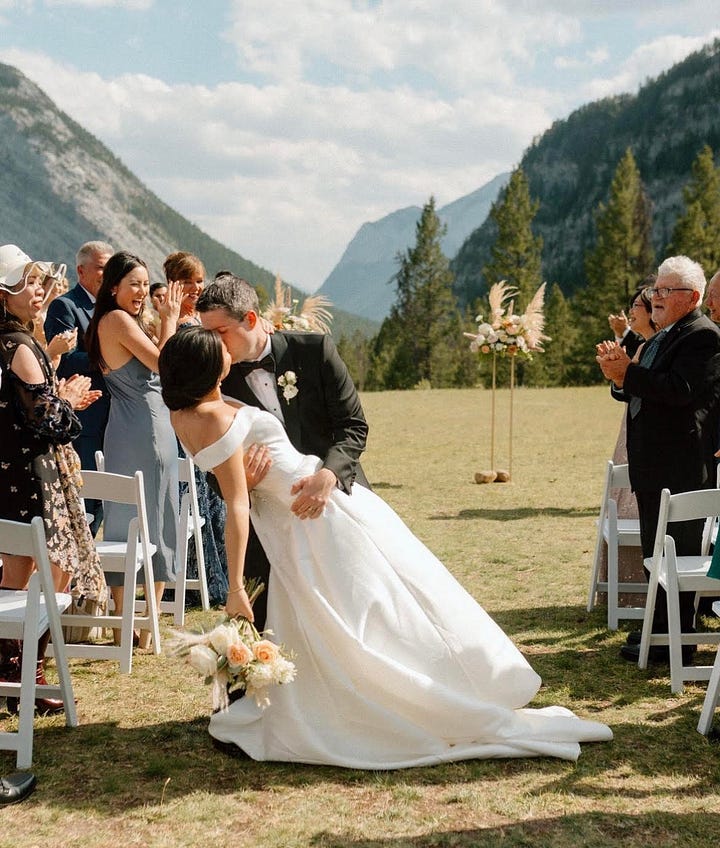
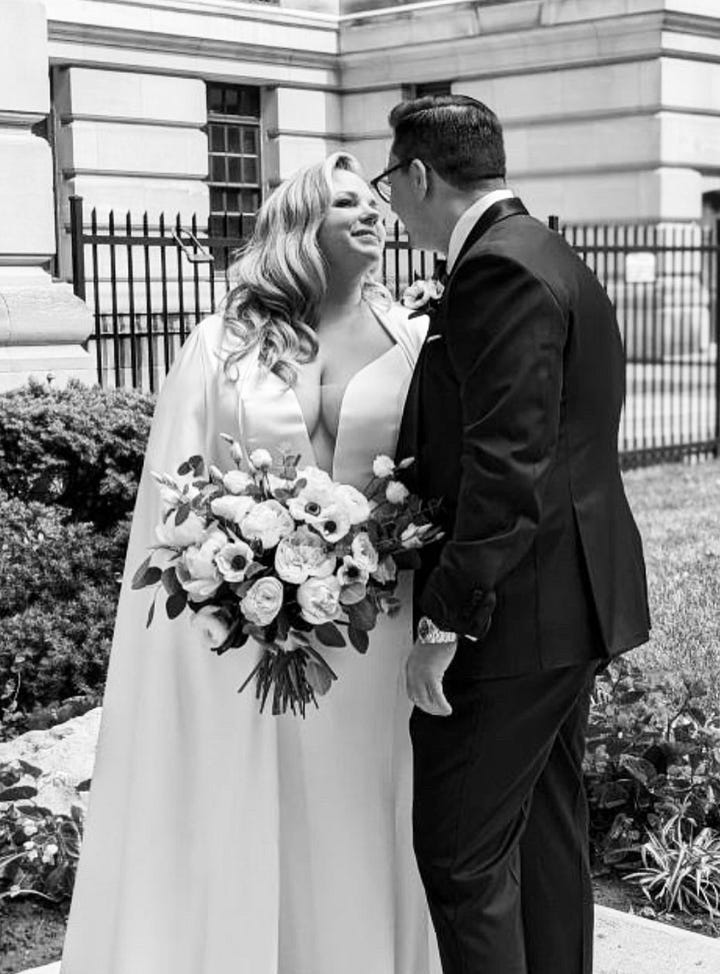
2 babies
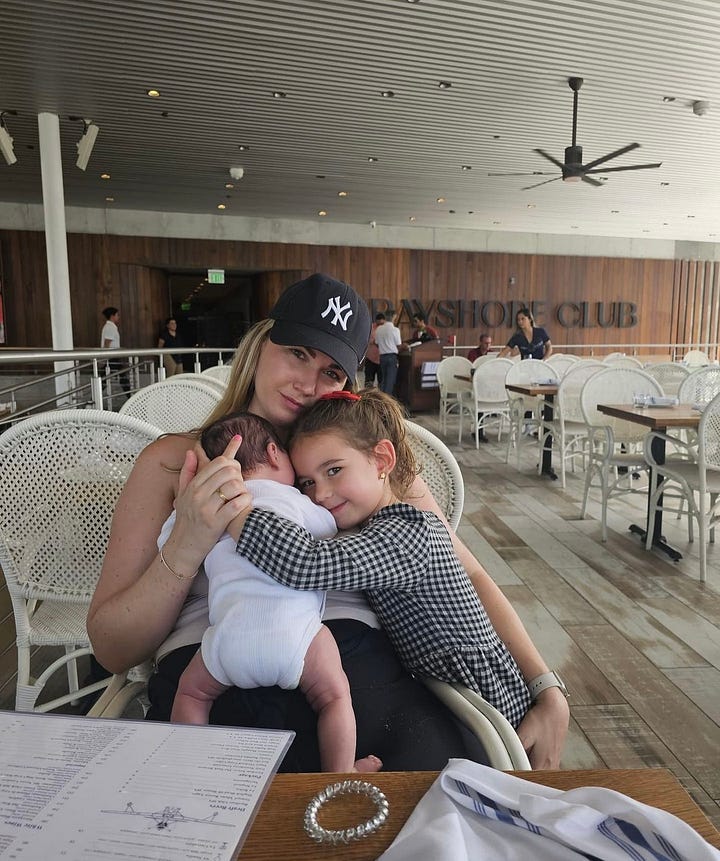
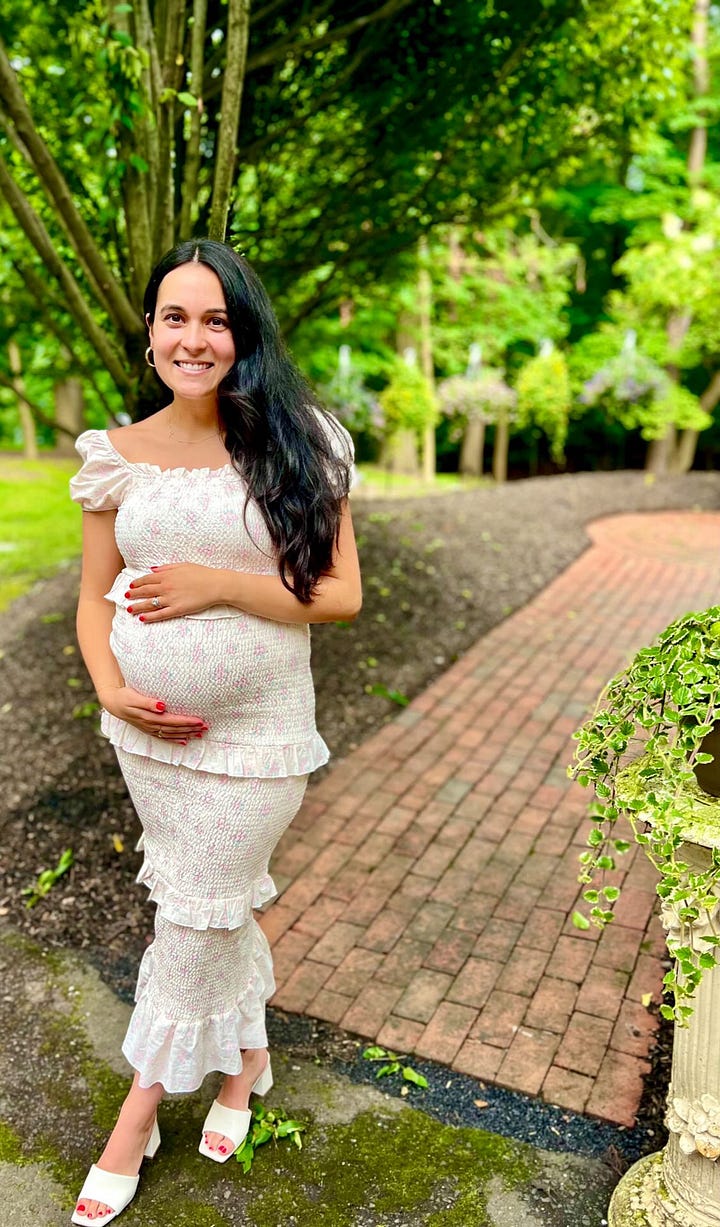
2 trips
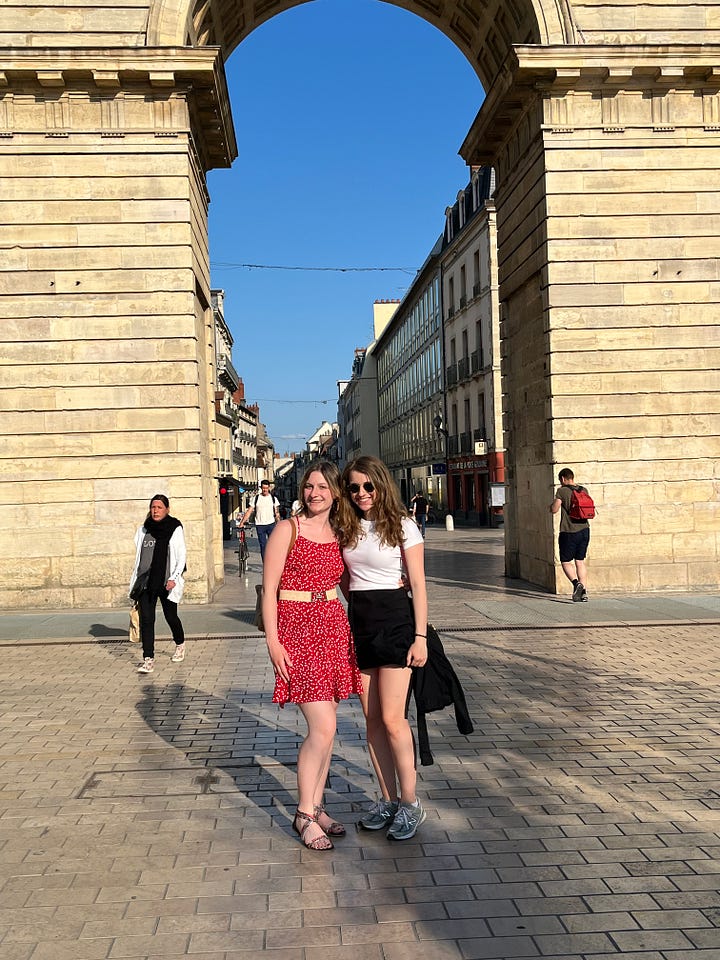
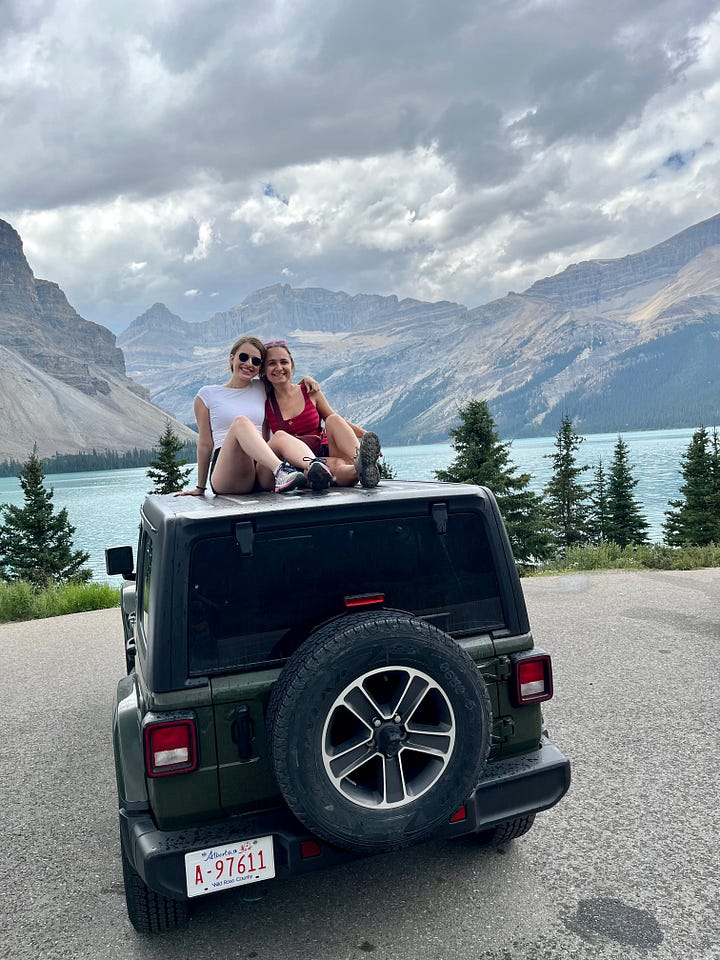
Too many cool women to count
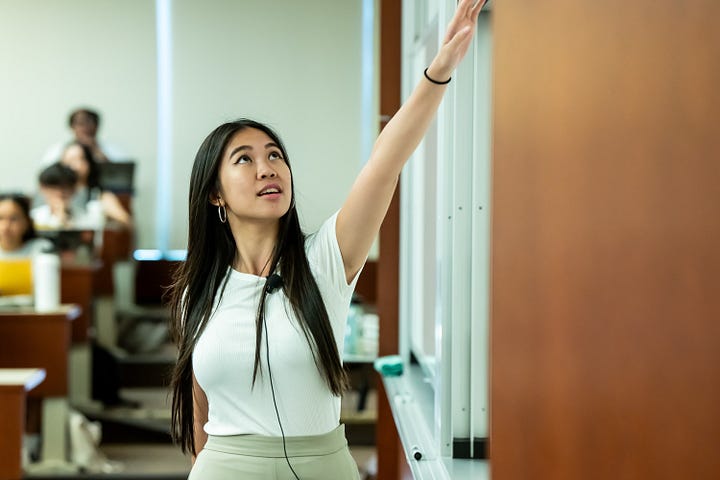
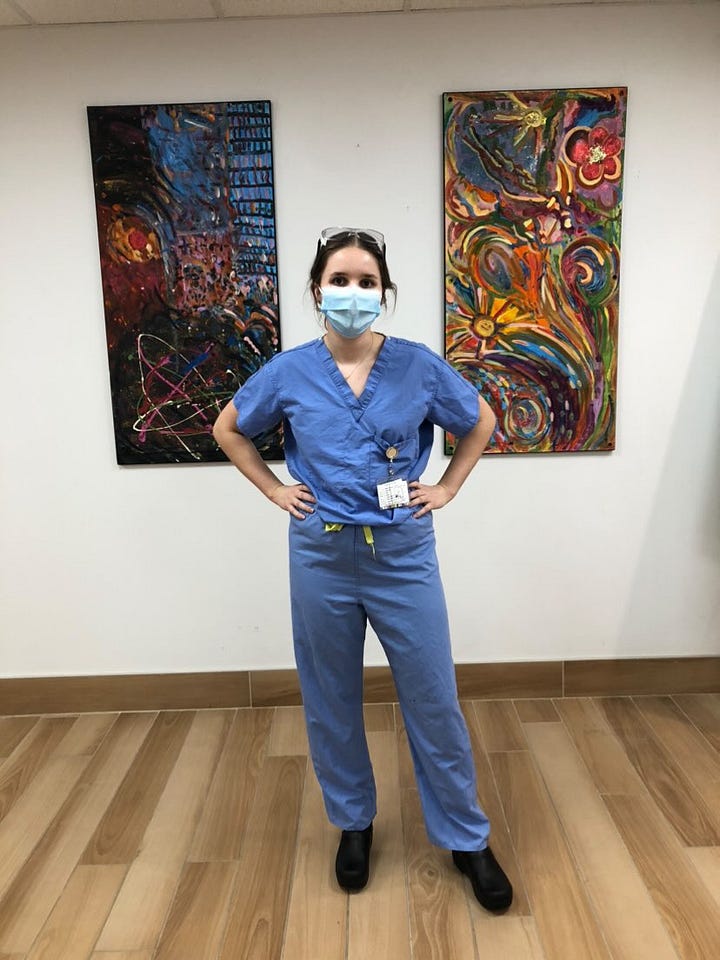


A first love
And many good jokes
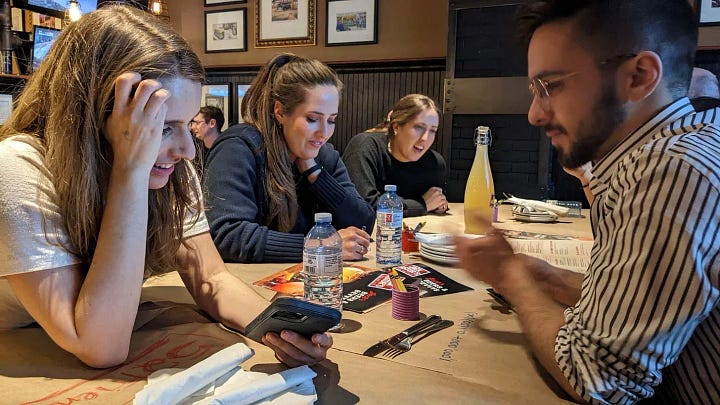
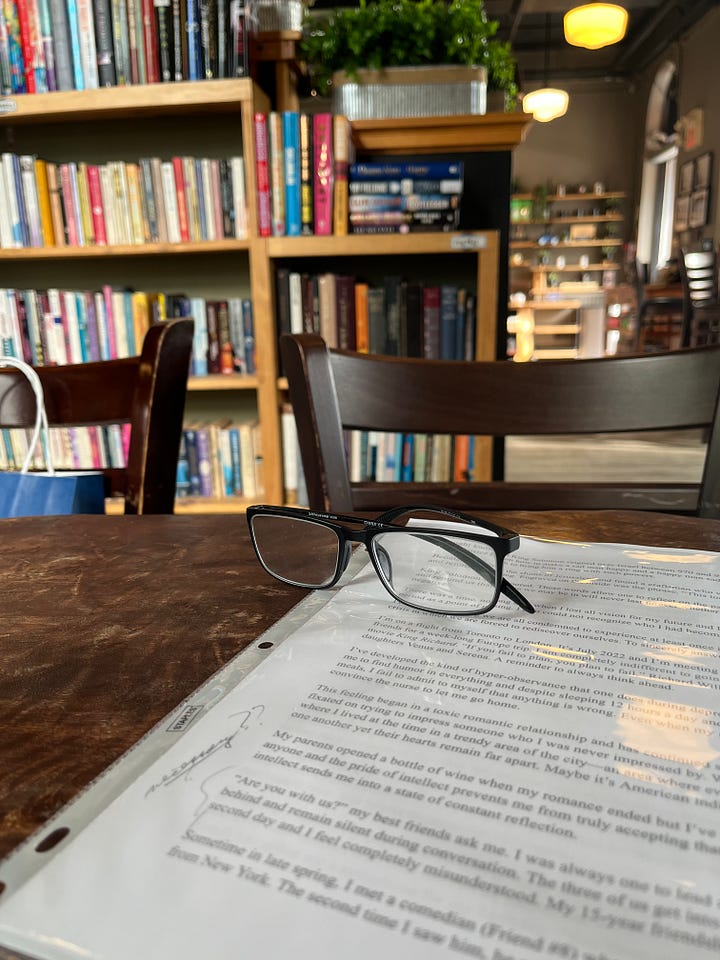
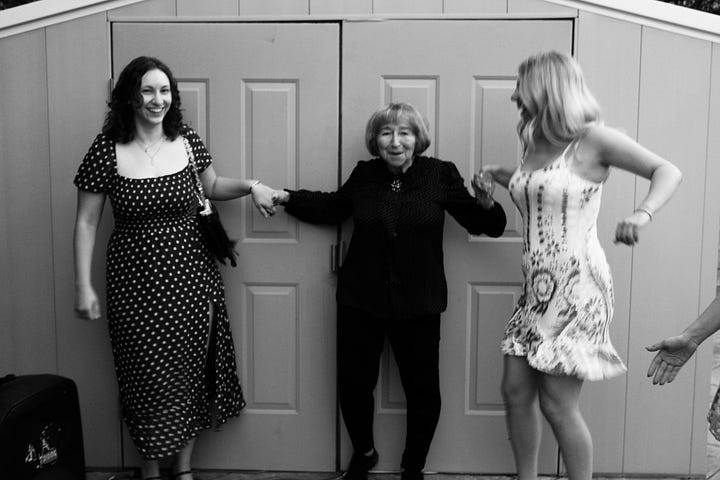
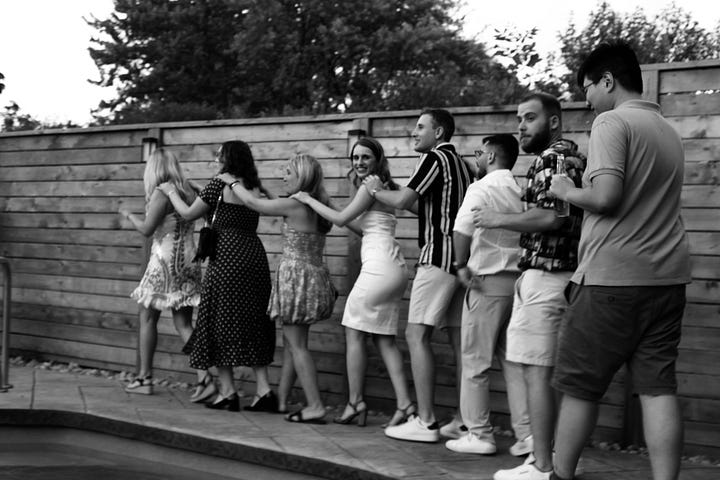
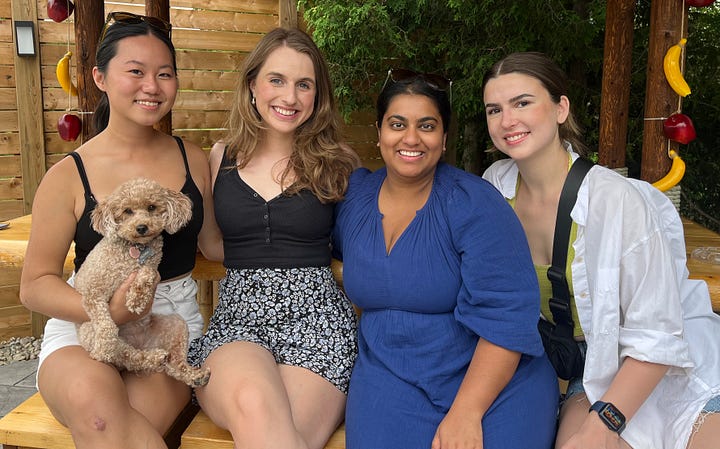
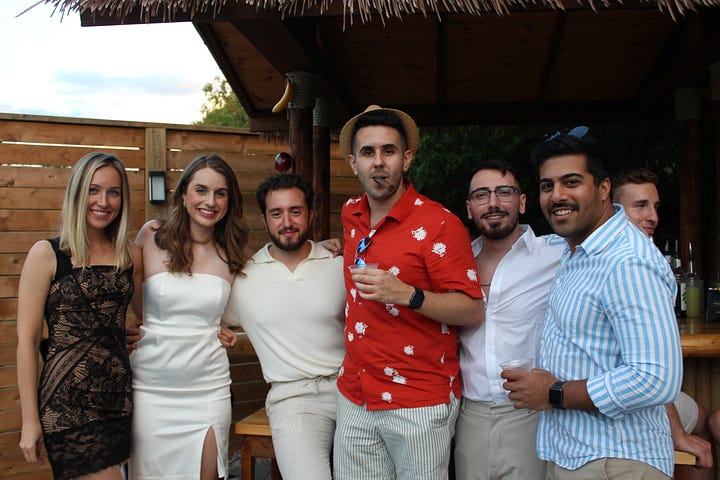


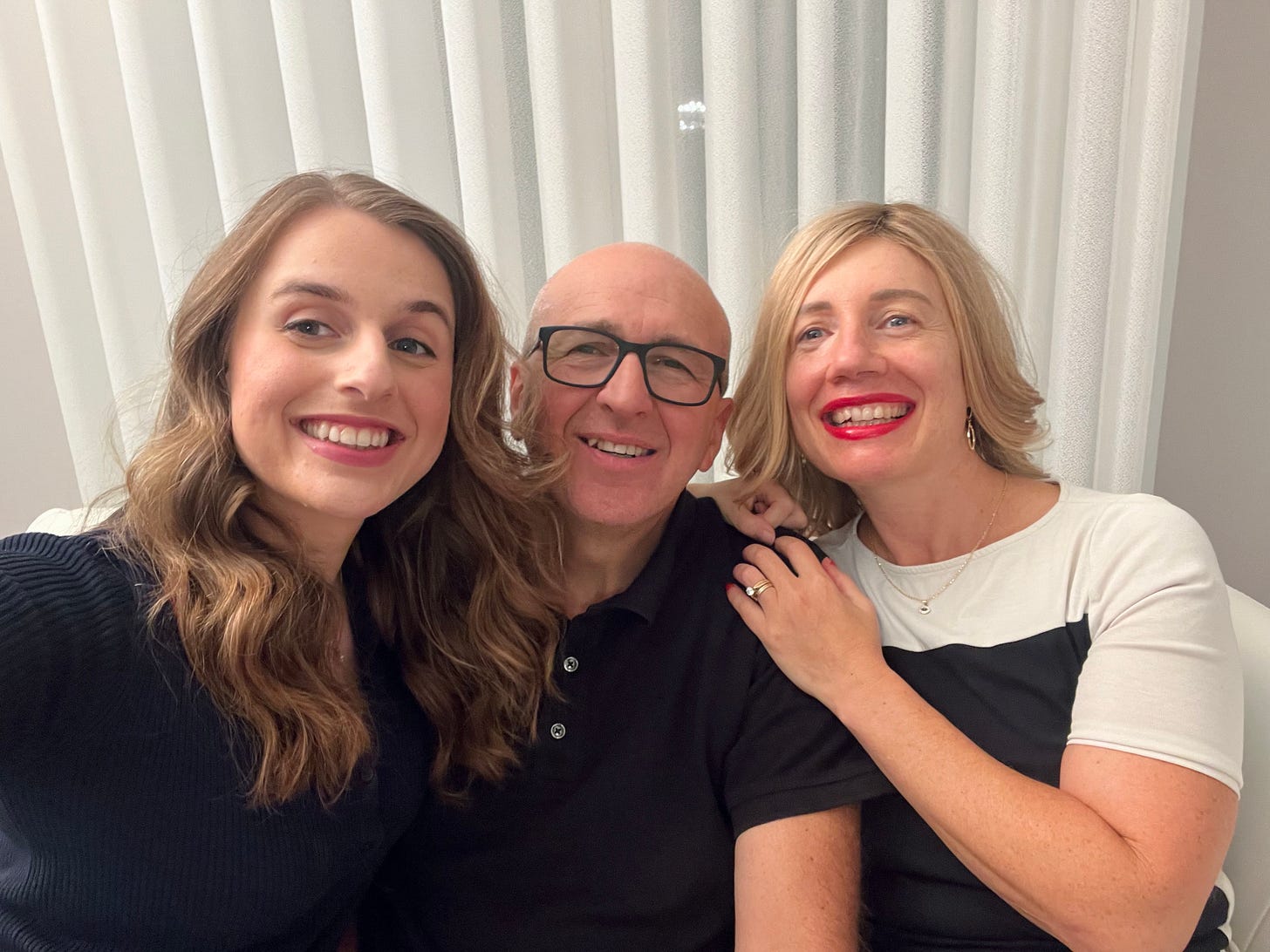
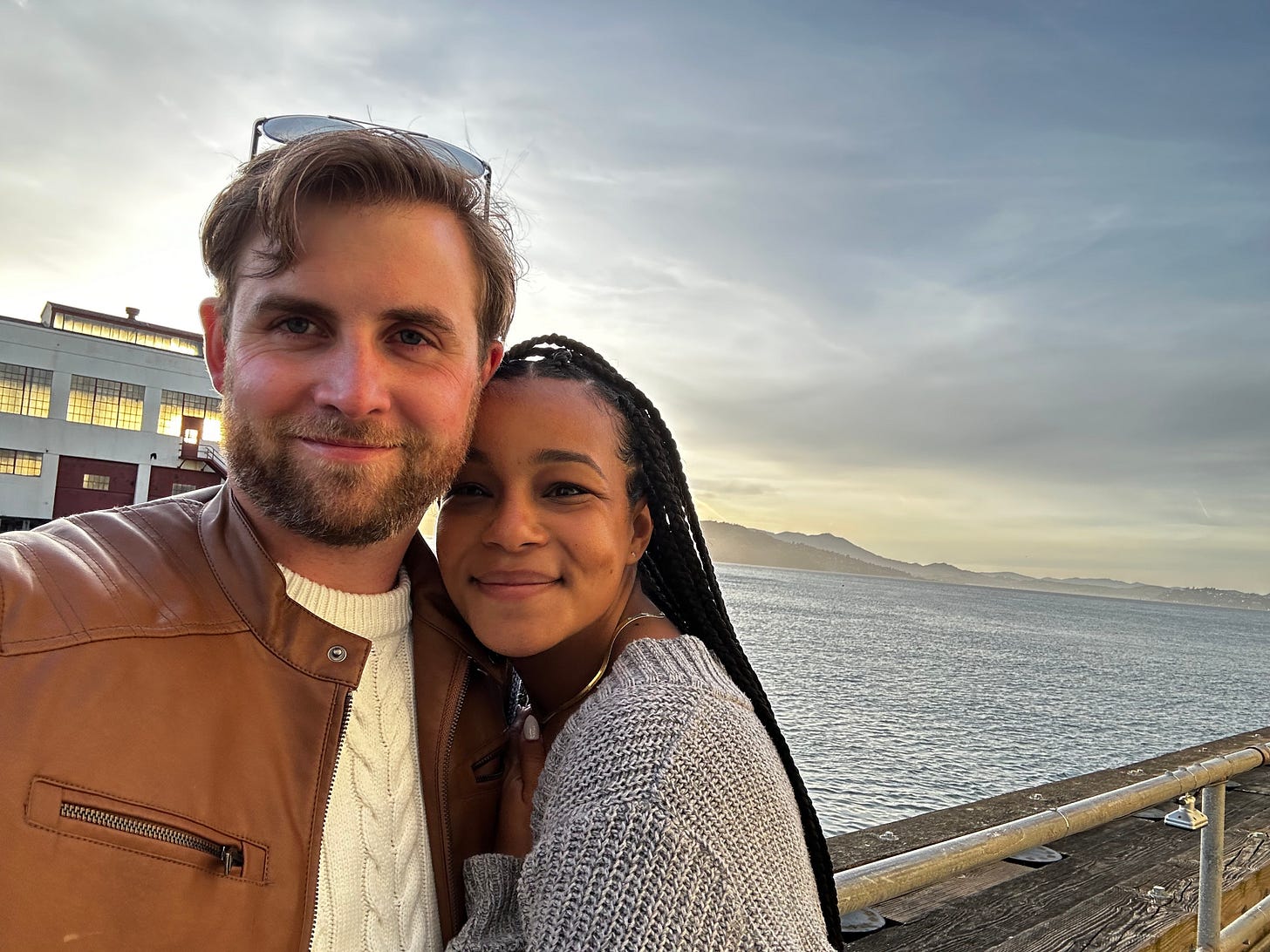
Saw the agenda about lonliness. Thing with you is there any friends that you meet with once a month? With talking with strangers. Just had a tenant move into the building. Spoke to him as he got out of his vehicle. I'm a people person.